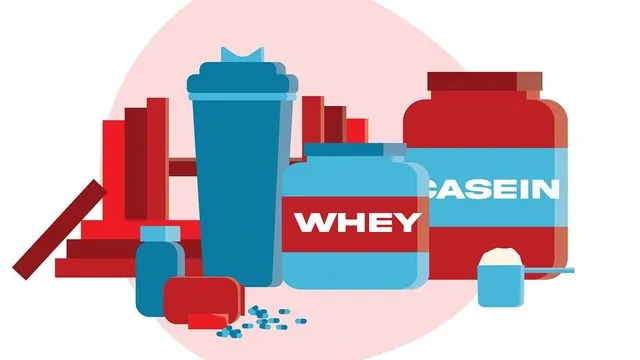
Revolutionary Plant-Based System Produces Essential Workout Supplements Without Animals!
2024-10-02
Author: John Tan
Introduction
It’s no secret that a balanced diet is essential for maintaining peak physical performance, but certain vitamins and nutrients traditionally sourced from animal products, such as creatine, carnosine, and taurine, are crucial for athletes and fitness enthusiasts. However, a groundbreaking study published in the ACS Journal of Agricultural and Food Chemistry reveals an innovative method for synthesizing these critical compounds directly within plants.
Research Overview
Researchers led by Pengxiang Fan have developed a unique technology that leverages a specialized bacterium to transfer DNA instructions into the cells of plants, enabling them to produce amino acids, peptides, and other vital molecules usually found in animal sources. This advancement comes at a time when more individuals are looking to plant-based alternatives, whether for health, ethical, or environmental reasons.
Key Findings
Using a model plant known as Nicotiana benthamiana, which is similar to tobacco, the team employed modular synthetic biology techniques to enhance the production of three pivotal nutrients:
1. Creatine Production
The introduction of a synthetic module with genes specific for creatine synthesis yielded 2.3 micrograms of creatine per gram of plant material—a promising start for future enhancements.
2. Carnosine Enhancement
Carnosine, a peptide linked to muscle endurance, showed a remarkable 3.8-fold increase in production by stacking the synthetic modules for carnosine along with one of its building blocks, β-alanine. Interestingly, while β-alanine does exist in small quantities in N. benthamiana, the modular approach allowed for a significant boost in output.
3. Taurine Challenge
In contrast, efforts to produce taurine through a double-modular method faced setbacks. Instead of achieving the desired amino acid, the plant's metabolism encountered major disruption, leading to minimal taurine production as the organism struggled to normalize its biological processes.
Implications of the Study
The implications of this study are vast. The researchers emphasize the potential of this modular system to create not just workout supplements but nutrient-rich edible plants, including fruits and vegetables. This could pave the way for sustainable agriculture, where plants function as biofactories, producing high-yield, animal-derived nutrients without the need for livestock.
Future Prospects
Imagine a future where your spinach smoothie includes naturally harvested taurine, or your post-workout banana is laden with all the essential peptides to boost recovery! As research continues in this exciting field, athletes and health-conscious individuals may soon have access to plant-based sources of nutrients that support their active lifestyles—without the environmental footprint linked to traditional animal farming.
Conclusion
Stay tuned for updates as this revolutionary research unfolds, potentially transforming the fitness and nutrition industries forever!



 Brasil (PT)
Brasil (PT)
 Canada (EN)
Canada (EN)
 Chile (ES)
Chile (ES)
 España (ES)
España (ES)
 France (FR)
France (FR)
 Hong Kong (EN)
Hong Kong (EN)
 Italia (IT)
Italia (IT)
 日本 (JA)
日本 (JA)
 Magyarország (HU)
Magyarország (HU)
 Norge (NO)
Norge (NO)
 Polska (PL)
Polska (PL)
 Schweiz (DE)
Schweiz (DE)
 Singapore (EN)
Singapore (EN)
 Sverige (SV)
Sverige (SV)
 Suomi (FI)
Suomi (FI)
 Türkiye (TR)
Türkiye (TR)